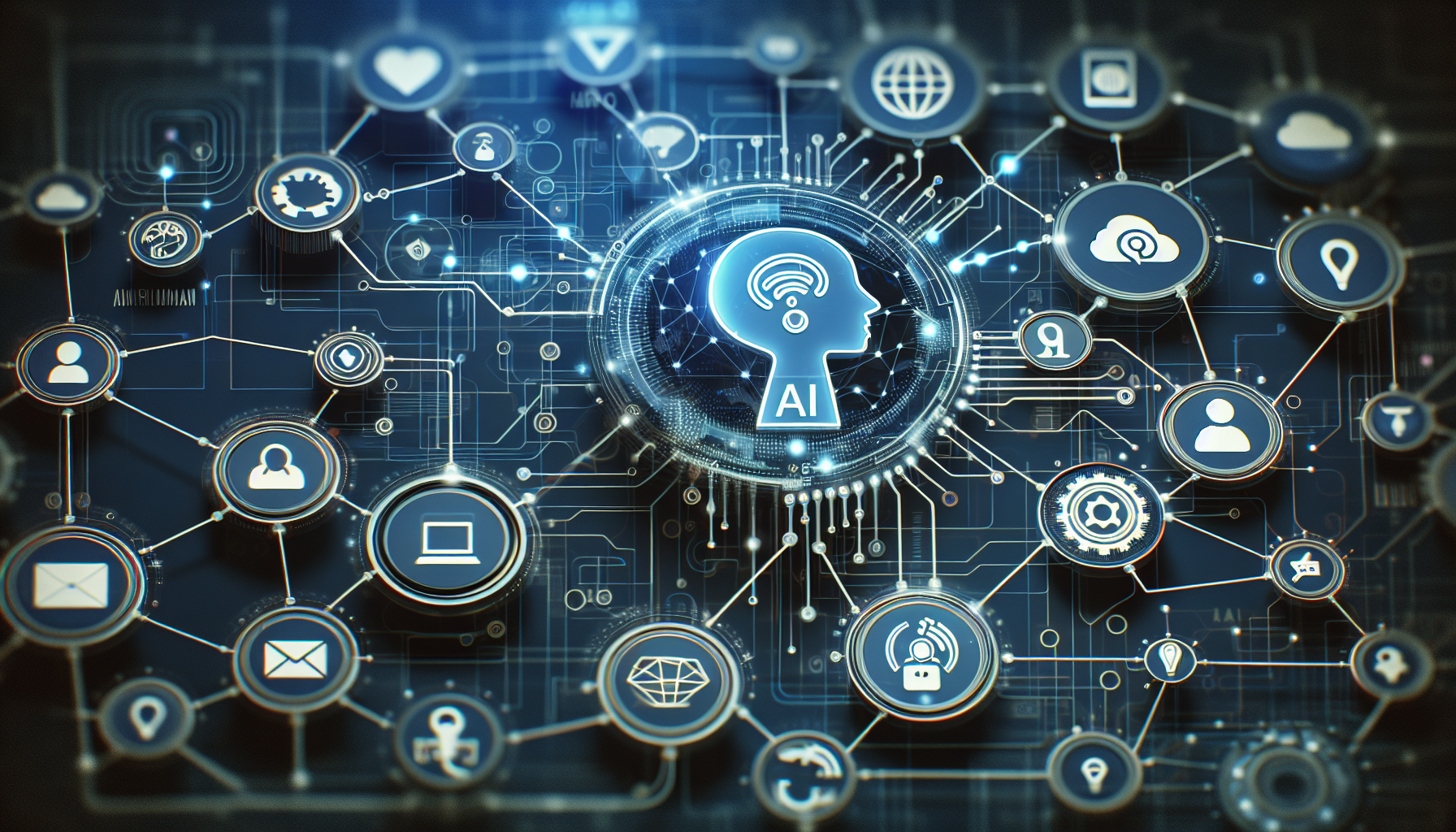AI in the Health Care industry
- Author:Musti
- Email:mus***@moneyleak.org
- Title:AI in the Health Care industry
- Purpose:How can it be applied
Introduction
Artificial Intelligence (AI) is no longer a concept confined to science fiction; it has become a pivotal force transforming various industries, with healthcare being at the forefront of this revolution. By leveraging advanced algorithms and vast amounts of data, AI is enhancing diagnostic accuracy, personalizing treatment plans, and streamlining administrative processes. The integration of AI technologies such as predictive analytics, machine learning, robotic surgery, and virtual health assistants is enabling healthcare providers to deliver more efficient, effective, and accessible care. This article delves into the transformative impact of AI in the healthcare industry, highlighting key innovations, benefits, and the challenges that must be addressed to fully harness its potential.
Enhancing Diagnostic Accuracy
One of the most significant applications of AI in healthcare is improving diagnostic accuracy. Traditional diagnostic methods can be time-consuming and are subject to human error. AI algorithms, trained on vast datasets of medical images and patient records, can identify patterns and anomalies that may be missed by the human eye. For instance, Google’s DeepMind developed an AI system that can detect over 50 eye diseases with an accuracy matching that of leading experts. Similarly, AI-driven tools like IBM Watson are assisting radiologists in interpreting imaging results more accurately and swiftly, leading to earlier diagnosis and better patient outcomes.
Personalizing Treatment Plans
AI enables the creation of personalized treatment plans by analyzing individual patient data, including genetic information, lifestyle, and medical history. Machine learning models can predict how patients will respond to specific treatments, allowing healthcare providers to tailor therapies to each patient’s unique needs. For example, in oncology, AI systems analyze tumor genetic profiles to recommend targeted therapies, increasing the effectiveness of treatment and reducing side effects. Personalized medicine not only improves patient outcomes but also optimizes resource utilization within healthcare facilities.
Streamlining Administrative Processes
Administrative tasks in healthcare, such as scheduling, billing, and patient record management, are often burdensome and time-consuming. AI-powered solutions can automate these processes, reducing the administrative burden on healthcare professionals and minimizing the risk of errors. Natural Language Processing (NLP) algorithms can transcribe and organize patient records, while AI-driven chatbots handle appointment scheduling and patient inquiries. According to a study by McKinsey, automation of administrative tasks could save the U.S. healthcare industry up to $150 billion annually.
Predictive Analytics in Healthcare
Predictive analytics involves using historical data and machine learning algorithms to forecast future events. In healthcare, predictive analytics can identify patients at high risk of developing chronic conditions, enabling early intervention and preventive care. For example, AI models can analyze electronic health records to predict the likelihood of hospital readmissions, allowing providers to implement strategies to reduce these rates. Additionally, predictive analytics is instrumental in managing hospital resources, optimizing staff allocation, and improving overall operational efficiency.
Robotic Surgery
Robotic surgery systems, guided by AI, are revolutionizing surgical procedures by enhancing precision, flexibility, and control. These systems assist surgeons in performing complex operations with minimally invasive techniques, resulting in shorter recovery times and reduced complications for patients. The da Vinci Surgical System is one of the most widely used robotic platforms, enabling surgeons to perform delicate procedures with enhanced accuracy. As AI continues to advance, robotic surgery is expected to become more autonomous, further improving surgical outcomes and expanding the range of treatable conditions.
Virtual Health Assistants
Virtual health assistants powered by AI are transforming patient engagement and care management. These digital assistants can provide patients with personalized health information, medication reminders, and support for managing chronic conditions. For example, AI-driven apps like Ada and Buoy Health use symptom checkers to guide patients to appropriate care pathways. During the COVID-19 pandemic, virtual health assistants played a crucial role in triaging patients, providing timely information, and reducing the burden on healthcare facilities. By enhancing patient interaction and support, virtual health assistants contribute to better health outcomes and increased patient satisfaction.
Benefits of AI in Healthcare
The integration of AI in healthcare offers numerous benefits, including:
- Improved Accuracy: Enhanced diagnostic tools reduce errors and increase the precision of medical assessments.
- Efficiency: Automation of administrative and clinical tasks streamlines operations, allowing healthcare professionals to focus more on patient care.
- Cost Reduction: AI-driven efficiencies can lead to significant cost savings for healthcare systems.
- Accessibility: AI-powered telemedicine and virtual assistants expand access to healthcare services, especially in remote or underserved areas.
- Personalization: Tailored treatment plans based on individual patient data improve the effectiveness of therapies.
Challenges and Considerations
Despite its potential, the adoption of AI in healthcare faces several challenges:
- Data Privacy and Security: The use of sensitive patient data necessitates stringent security measures and compliance with regulations like HIPAA.
- Integration with Existing Systems: Seamlessly incorporating AI solutions into current healthcare infrastructures can be complex and resource-intensive.
- Bias and Fairness: AI algorithms must be trained on diverse datasets to avoid biases that can lead to unequal treatment outcomes.
- Regulatory Approval: Ensuring that AI tools meet regulatory standards for safety and efficacy is essential for widespread adoption.
- Ethical Considerations: The use of AI in decision-making processes raises ethical questions about accountability and the role of human oversight.
Future Outlook
The future of AI in healthcare is promising, with ongoing advancements poised to further revolutionize the industry. Emerging technologies such as deep learning, natural language processing, and autonomous systems will enhance AI’s capabilities, enabling even more sophisticated applications. Collaborative efforts between technologists, healthcare providers, and regulatory bodies will be crucial in addressing challenges and ensuring that AI technologies are implemented responsibly and ethically. As AI continues to evolve, its role in healthcare will expand, driving innovation and improving the quality of care for patients worldwide.
Conclusion
AI is undeniably transforming the healthcare industry by enhancing diagnostic accuracy, personalizing treatments, and streamlining administrative processes. With applications ranging from predictive analytics and robotic surgery to virtual health assistants, AI is enabling healthcare providers to deliver more efficient, effective, and accessible care. While challenges such as data privacy, integration, and ethical considerations must be addressed, the potential benefits of AI in healthcare are immense. As technology continues to advance, AI will play an increasingly vital role in shaping the future of healthcare, ultimately leading to better patient outcomes and a more sustainable healthcare system.

Germany’s economic journey: from post-war miracles to modern innovation and export power. Can its bright future keep shining?

Unlock AI automation for social media: save time, boost engagement, and gain smart insights for a powerful online presence!